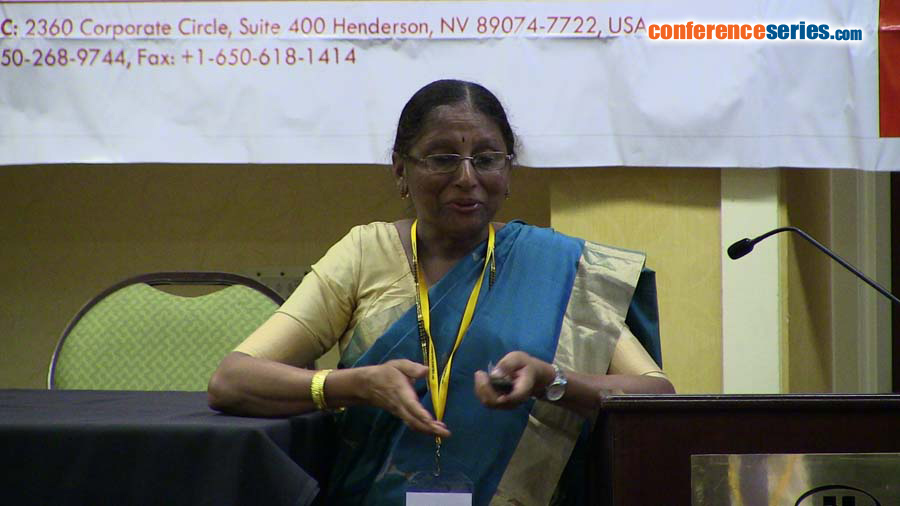
D.L. Savithramma
University of Agricultural Sciences, India
Title: Identification of drought tolerant groundnut (arachis hypogaea) genotypes under stress and control conditions through gravimetric studies
Biography
Biography: D.L. Savithramma
Abstract
Plant root is one of the major organs for water and nutrient uptake from soil. Root development and amount of water absorption from the soil are closely related. Under drought condition the success of crop plants often depend on growth of roots. In the present study gravimetric experiment was conducted to evaluate the yield potential of released and pre released groundnut genotypes.Root growth parameters such as root length, shoot length, shoot weight, leaf length, root volume and dry root weight were recorded in five genotypes viz., KCG-2, TMV-2, GKVK-5, GKVK-3 and GKVK-13 under controlled and water stress conditions in pot experiment at University of Agricultural Sciences, Bangalore, India. Stress was imposed for 20 days during flowering stage by balancing the amount of water applied to make it 50% stress. Analysis of variance revealed highly significant differences for the traits observed indicating the existence of variability in the material selected. In controlled condition all the root traits exhibited higher mean values over stress condition in the genotypes studied except in GKVK-5 for root dry weight. In stress treatment GKVK-5, GKVK-3 and GKVK-13 genotypes exhibited higher mean values for root volume, root dry weightand root length. Genotypes GKVK-5, TMV-2 and KCG-2 recorded higher mean for shoot weight and leaf length. Among all genotypes GKVK-5 was identified as high yielding with 2.8 to 3.0 t/ ha, with low to moderate Δ13C (17.53) and high δ18O (31.24) and low specific leaf area(107.76cm2/g)and was found to have higher Water Use Efficiency or to be drought tolerant genotype indicating effective partitioning of the accumulated biomass towards root and shoot, while diverting relatively lesser towards shoot biomass. Hence, breeding for root development proved to be effective in increasing crop Water Use Efficiency and drought tolerance.




